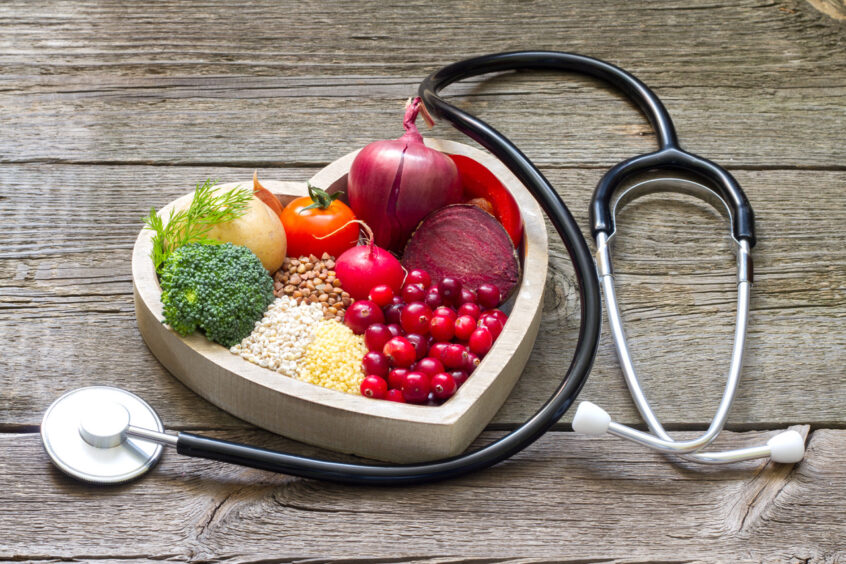The studies are clear. Increasing your intake of plant-based foods is associated with a decreased risk of cardiovascular disease. VGH cardiologist Dr. Matthew Bennett has taken this fact to heart. He and his wife committed to a vegan diet four years ago and haven’t looked back.
“It was easier for me to go all in rather than have cheat days,” recalled Dr. Bennett, a member of the Division of Cardiology’s advocacy committee responsible for planetary health initiatives, chair of the Canadian Cardiovascular Society’s Planetary Health Committee, and a new member of our VA/VC Medical Staff Planetary Health Committee. “We made the decision not only for health reasons but also to decrease our carbon footprint and reduce cruelty to animals.”

Canada’s Dietary Guidelines for Health Professionals and Policy Makers sets out Health Canada’s guidelines and considerations on healthy eating. It states:
“Vegetables, fruit, whole grains, and protein foods should be consumed regularly. Among protein foods, consume plant-based more often. …Health Canada recommends the regular intake of nutritious foods—vegetables, fruit, whole grains, and protein foods—that are commonly found in patterns of eating linked with beneficial effects on health. [These foods] have been shown to have a protective effect in reducing the risk of cardiovascular disease, including risk factors such as high blood pressure and elevated blood lipids.”
“Cardiovascular disease is a serious health concern and almost half of the deaths from cardiovascular disease in recent years in Canada have been attributed to dietary risks,” said Dr. Bennett. “There are clear recommendations to replace our dietary protein from animals with protein from plants. This improves cholesterol and reduces atherosclerosis. Every patient has a different background and perspective on their diet. My recommendations depend on their readiness for change. In certain patients, I don’t broach the subject as they don’t seem receptive and in others I suggest replacing animal protein with plant protein for one meal per week to get started. Some patients are interested in pursuing a full vegan diet.”
People who eat more plant-based foods typically have higher intakes of dietary fibre, vegetables and fruits, nuts, and soy protein. These foods are related to lower risks of cardiovascular disease, colon cancer, type 2 diabetes, and decreased LDL-cholesterol. Shifting away from processed meats is also a positive step, as these have been linked to increased risks of colorectal cancer.
Changing diets is not easy and removing meat and dairy from your diet doesn’t guarantee good health.
“When I first started adhering to a vegan diet, I would replace my animal products with foods that weren’t very healthy,” admitted Dr. Bennett. “With practice this has become easier. I bring my lunch to work and make sure I have four pieces of fruit (usually two oranges and two bananas). I add boiling water to dried oats or have overnight oats. Peanut butter and jam sandwiches are my usual lunch.”
The VA/VC Planetary Health Committee members are challenging colleagues to shift their diets towards more plant-based meals. The Veganuary Challenge encourages everyone to eat less meat and dairy in January… and beyond. We recommend choosing a challenge that’s right for you:
- Replace all food from animals with food from plants.
- Eliminate meat.
- Eliminate high carbon meat (lamb and beef).
- Reduce meat, fish, and eggs.
To help, we’re starting our own recipe collection with tried-and-true recipes from your colleagues. Check it out for lots of tasty and nutritious ideas to get you started on your journey towards a more plant-based diet.




